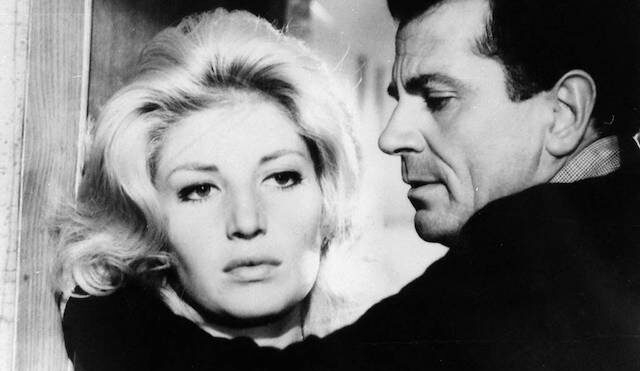Italian cinema lost one of its most iconic stars on Feb. 2 with the passing of Monica Vitti at the age of 90. She suffered from dementia and hadn’t made a public appearance in nearly 20 years, but her acting prowess and simple-yet-stunning beauty will echo for generations to come.
Born Maria Luisa Ceciarelli in Rome on Nov. 3, 1931, Vitti pursued acting as a teenager. She started in amateur theater before her formal training at Rome’s National Academy of Dramatic Arts. Shortly after graduating in 1953, she toured Germany with an Italian acting troupe and then returned to her hometown to appear onstage in a production of Niccolò Machiavelli’s “La Mandragola.” Her first major film role was in Mario Amendola’s 1958 “Le dritte.”
Her breakout role came just two years later as the She and the director were involved romantically, so she invested much of herself in the project, accompanying Antonioni on his difficult location scouting through the Aeolian Islands, and then enduring nearly impossible conditions while shooting, which included frigid Mediterranean waters and rodent infestations around the islands.
The film premiered at the 1960 Cannes Film Festival to boos and disapproval. The next day, Roberto Rossellini along with other filmmakers released a statement. “Aware of the exceptional importance of Michelangelo Antonioni’s film, “L’Avventura” they wrote, “and appalled by the displays of hostility it has aroused, the undersigned critics and members of the profession are anxious to express their admiration for the maker of this film.” The film went on to win the festival’s Special Jury Prize and was later named by 70 international film critics, the second-greatest film ever made, behind Citizen Kane.
Vitti starred in several of Antonioni’s films, two of which are considered a series together with “L’Avventura.” “La Notte” in 1961 and “L’Eclisse” in 1962 completed the trilogy. Antonioni explored his tormented belief that people had become emotionally unattached from one another. Vitti’s character put this belief into words near the finale of “La Notte” when she said, “Each time I have tried to communicate with someone, love has disappeared.”
After the couple called it quits a decade later, Vitti went on to work with other Italian directors such as Mario Monicelli, and then in 1970, shared the screen with Marcello Mastroianni in Ettore Scola’s romantic comedy about a love triangle between a florist, construction worker and a pizzaiola, “Dramma della gelosia”(The Drama of Jealousy). The film was wildly successful in Italy and showed audiences a hilarious and completely different side of her detached characters of the Antonioni years.
The ‘70s proved to be a prolific decade. She took on a number of challenging roles and won prizes for her performances. One of those characters, Miele, proves that she, together with Claudia Cardinale were the first official Thelma and Louise. Carlo Di Palma’s 1975 comedy, “Qui comincia l’avventura” (Blonde in Black Leather) featured the gorgeous pair whose southern Italian characters trade in their dull lives for a wild road trip up north.
Although she is best known internationally for the films she made with Antonioni, her collaborations and decades-long friendship with Alberto Sordi greatly impacted her cinematic legacy among Italians. The two had a uniquely strong chemistry whether the film was a drama or comedy. Their memorable collaborations include Sordi’s 1969 “Amore mio aiutami” (Help Me, My Love), the 1973 “Polvere di stelle” (Stardust) and the 1982 “Io so che tu sai che io so” (I Know That You Know That I Know).
In 1980, she paired up again with Antonioni for his project, “Il mistero di Oberwald” (The Mystery of Oberwald). It was the last time the two would work together. In 1995, she married her longtime partner, director Roberto Russo and remained under the radar except for an occasional film festival or television appearance.
 Fra Noi Embrace Your Inner Italian
Fra Noi Embrace Your Inner Italian







